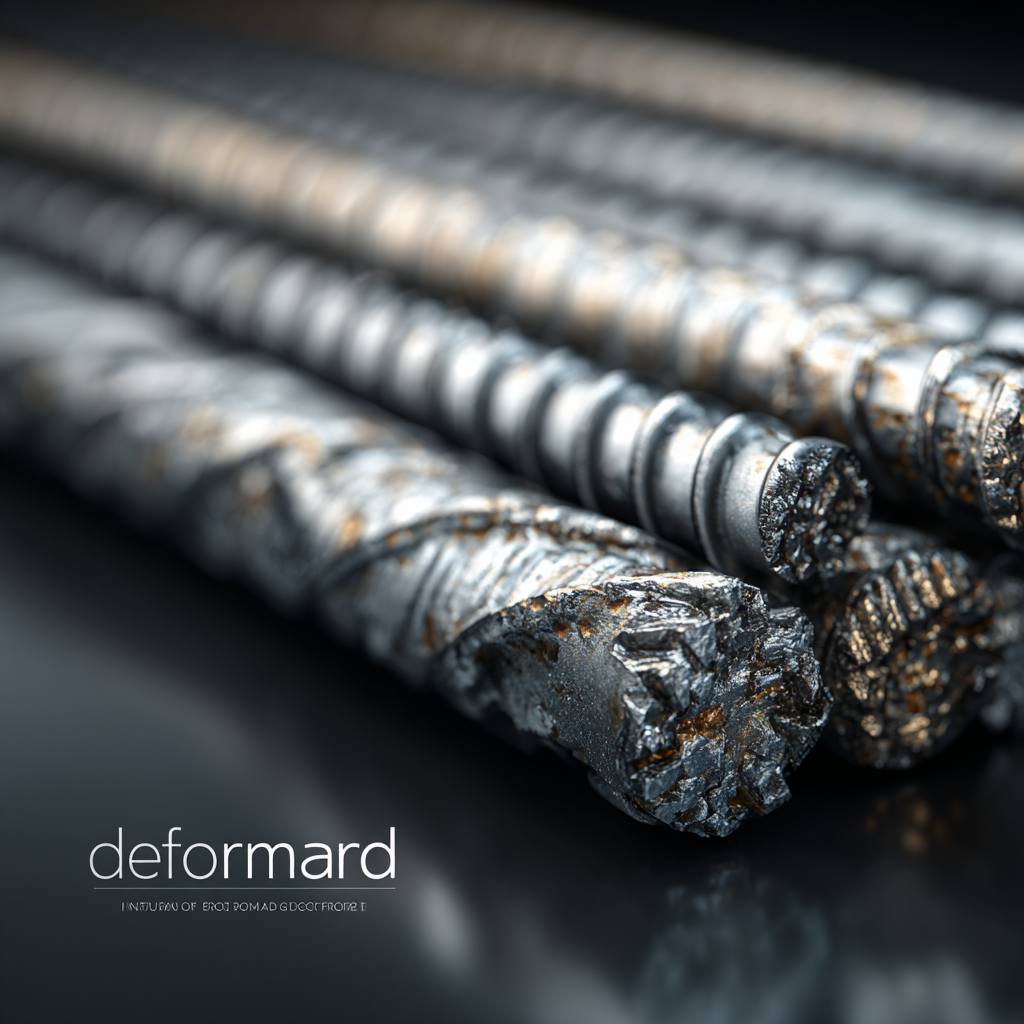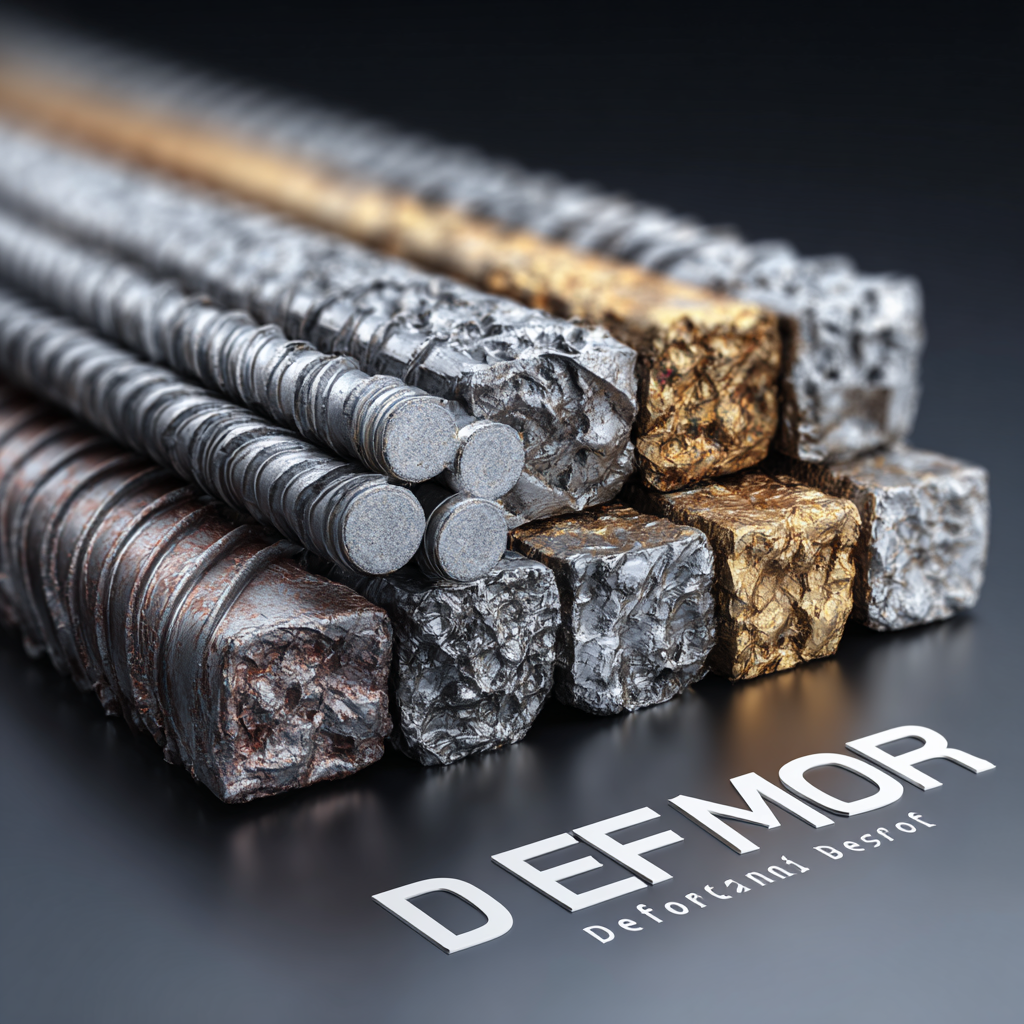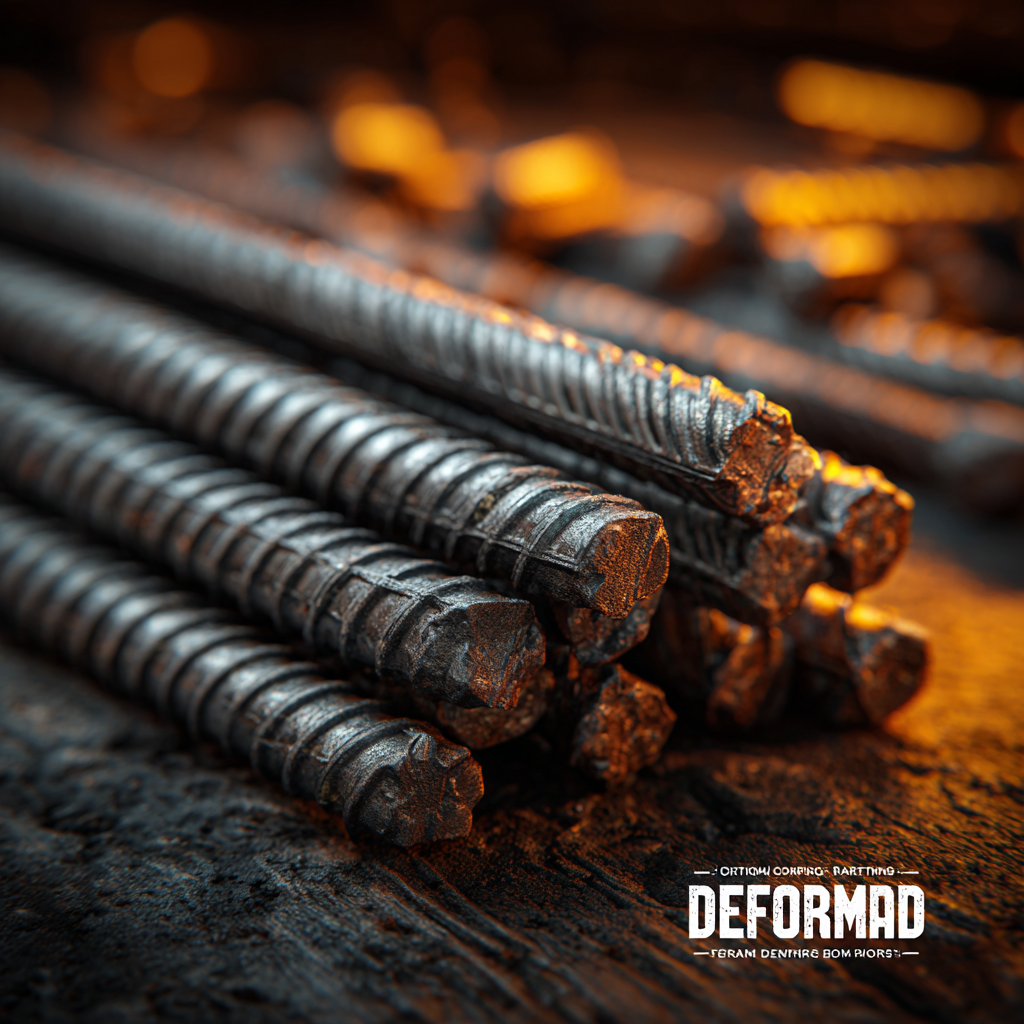Leave Your Message
-
Phone
-
E-mail
-
Whatsapp
 In the competitive landscape of the construction industry, sourcing high-quality materials is paramount for ensuring structural integrity and longevity. One critical component in this regard is the Deformed Bar, which plays a pivotal role in enhancing the tensile strength of concrete structures. According to a report by Allied Market Research, the global deformed steel bar market is expected to reach $XXX billion by 2025, reflecting a CAGR of XX%. This growth highlights the increasing demand for reliable suppliers who can deliver superior Deformed Bars that meet stringent quality standards.
In the competitive landscape of the construction industry, sourcing high-quality materials is paramount for ensuring structural integrity and longevity. One critical component in this regard is the Deformed Bar, which plays a pivotal role in enhancing the tensile strength of concrete structures. According to a report by Allied Market Research, the global deformed steel bar market is expected to reach $XXX billion by 2025, reflecting a CAGR of XX%. This growth highlights the increasing demand for reliable suppliers who can deliver superior Deformed Bars that meet stringent quality standards.
As construction projects scale up globally, particularly in emerging markets, understanding the challenges and nuances in sourcing these essential materials from reputable manufacturers becomes essential for global builders and contractors. By leveraging the capabilities of quality-oriented factories in China, stakeholders can not only fulfill their construction needs but also ensure compliance with international quality certifications.
When embarking on construction projects, one of the primary challenges is identifying quality deformed bars. Deformed bars play a crucial role in reinforcing concrete structures, and their quality directly impacts the durability and safety of the project. However, the market is replete with variations in quality, making it difficult for project managers to choose the right materials. It’s essential to prioritize factors such as the bar’s tensile strength, chemical composition, and adherence to industry standards.

Tip: Always request a comprehensive mill certificate from suppliers to verify the material's specifications. This document provides crucial insights into the manufacturing processes and ensures that the deformed bars meet the necessary codes and standards.
Another hurdle is the availability of materials that meet the project’s requirements within budget constraints. As construction demands fluctuate, prices can vary significantly, and finding reliable suppliers becomes paramount. Hence, developing relationships with reputable suppliers can help secure the right materials at competitive prices.
Tip: Consider establishing a long-term partnership with a trusted supplier. This can lead to better pricing and guaranteed availability, making your sourcing process smoother and more efficient.
When sourcing deformed bars for construction projects, it is essential to consider several key factors that can significantly impact both quality and cost-effectiveness. Firstly, understanding the material specifications is crucial. Deformed bars are typically made from high-strength steel and come in various grades, which dictate their load-bearing capacity and resistance to corrosion. Ensure that the bars meet relevant industry standards, such as ASTM or BS, to guarantee durability and performance under structural loads.
Another important factor is the supplier's reputation and quality assurance practices. Partnering with reputable manufacturers or suppliers can prevent issues related to material defects or inconsistencies. It is advisable to review their certifications and seek recommendations from industry peers. Additionally, consider the delivery schedules and logistics capabilities of your supplier to avoid delays in your construction timeline. By paying close attention to these factors, you can effectively source deformed bars that align with your project requirements, ensuring a solid foundation for your construction endeavors.
When sourcing deformed bars for construction, understanding the differences in steel grades and their specifications is crucial. A prominent example is the Grade 60 steel bars, which have been subject to studies revealing significant variability in mechanical strength across different batches. Research conducted in Ethiopia highlighted the statistical analysis of these bars, underscoring the importance of inspecting tensile strength and ductility before procurement. The findings indicated that the mechanical strength of deformed bars directly influences the structural integrity of concrete structures, making it imperative for engineers to select quality materials for their projects.
Furthermore, the bond strength between concrete and deformed bars is another critical factor in construction. A study examining relative bond strength ratios revealed that varying concrete grades, such as C40 and C60, exhibited different bonding efficacies with deformed bars. The research demonstrated how the diameter of the bars, their embedded depth, and the specific strength of the concrete utilized affected the bar-concrete bond. This highlights the necessity for precise matching of deformed bar specifications with concrete characteristics to optimize structural performance, particularly in seismic-force-resisting systems (SFRS). Understanding these parameters is essential for ensuring the reliability and safety of construction projects.
Navigating the marketplace for deformed bars can be a daunting task, especially when construction projects demand reliability and quality. As the backbone of reinforced concrete structures, deformed bars must meet stringent standards to ensure the safety and longevity of the build. However, not all suppliers provide the same level of quality. Therefore, it is vital to conduct thorough research to identify reliable sources. Look for suppliers who adhere to recognized industry standards and offer verifiable certifications. Additionally, customer reviews and testimonials can serve as a valuable tool in gauging supplier credibility.
When evaluating potential suppliers, consider their production capabilities and inventory levels. A reliable supplier should be able to meet your project timelines consistently by maintaining a robust stock of various sizes and grades of deformed bars. Furthermore, engage with suppliers who practice transparent communication, allowing for easy discussions about specifications, pricing, and delivery schedules. Establishing a partnership with a dependable supplier can alleviate sourcing challenges and contribute significantly to the overall success of your construction project.
When it comes to sourcing deformed bars, balancing quality with budget constraints is essential, especially in today's turbulent market environment. Recent reports indicate that global demand is slowing, while costs are on the rise, presenting both challenges and opportunities for buyers. For instance, the price of steel has seen fluctuations, primarily driven by supply chain disruptions and increasing production costs. According to the World Steel Association, the cost of raw materials has surged, pushing steel producers to optimize their supply chains and renegotiate procurement contracts to maintain profitability.
Moreover, manufacturers are feeling the strain from increased operating costs, leading some countries, like India, to consider restricting imports to encourage domestic sourcing. This trend indicates a potential shift in the market dynamic where local suppliers might face less competition from international players. As a buyer, understanding these market forces is crucial for making informed procurement decisions. With diligent research and sourcing strategies, it is possible to find high-quality deformed bars while effectively managing budgetary constraints in this shifting landscape.

